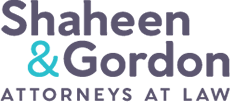COVID-19 Healthcare Law FAQs
Healthcare facilities are of the utmost importance as we face the COVID-19 pandemic. They are facing situations that have never been faced before. The Healthcare Law attorneys at Shaheen & Gordon are here to help. Here are some key topics and frequently asked questions for your immediate convenience.
Federal, state and local governments are rapidly responding with emergency orders, and new laws and regulations. Given the fluidity of the situation, we recommend reaching out to a member of our team for specific counsel.
To speak to an attorney, please call 800-451-1002.
Waivers Available for Hospitals and Health Care Facilities
Updated 3.23.20
On March 13, 2020, Governor Sununu issued Executive Order 2020-04, declaring a state of emergency for New Hampshire. The Order contained several measures that the state will implement to address the growing COVID-19 epidemic. Of particular importance to hospitals and health care facilities as they prepare to deal with the potential increase of infected patients is item 10:
To ensure hospitals and other health facilities are able to adequately treat patients who may be infected with COVID-19 or who are legally isolated as a result of COVID-19, and to prevent overburdening of existing resources of hospitals and health facilities, the Commissioner of the Department of Health and Human Services may waive any of the licensing or credentialing requirements of RSA Chapter 151 and accompanying regulations with respect to any hospital or health facility. Any waiver shall include alternative measures that, under the circumstances, will allow the facilities to treat legally isolated patients while protecting public health and safety. Any waivers granted pursuant to this paragraph shall be posted with the hospital or health facility's existing license.
Under this Order, hospitals and other facilities may request immediate waivers of licensing and credentialing requirements that would otherwise hamper their ability to treat infected patients. Shaheen & Gordon has confirmed that requests for waivers pursuant to this Order should be made to Kelly Keefe, RN at the Health Facility Licensing Unit of the Health Facilities Administration.
If you are a provider in need of assistance with requesting a waiver, please contact our office at (603) 225-7262.
Telehealth Expansion
Updated 3.23.20
On March 17, 2020, the U.S. Department of Health & Human Services announced three policy changes aimed at increasing access to telehealth during the current COVID-19 public health emergency. The first is the Centers for Medicare & Medicaid Services (“CMS”) expansion of telehealth coverage under Medicare in accordance with its Section 1135 waiver authority and the Coronavirus Preparedness and Response Supplemental Appropriations Act. Under this new waiver, Medicare can pay for office, hospital, and other visits furnished via telehealth across the country and including in patients’ places of residence starting March 6, 2020. A range of providers, such as doctors, nurse practitioners, clinical psychologists, and licensed clinical social workers, will be able to offer telehealth to their patients.
The second policy change was the HHS Office of Inspector General’s policy statement confirming that it will not subject physicians and other practitioners to administrative sanctions related to the waiver of cost-sharing for telehealth arrangements that satisfy both of the following conditions:
1. A physician or other practitioner reduces or waives cost-sharing obligations (i.e., coinsurance and deductibles) that a beneficiary may owe for telehealth services furnished consistent with the then-applicable coverage and payment rules.
2. The telehealth services are furnished during the time period subject to the COVID-19 Declaration.
Finally, HHS’ Office of Civil Rights (“OCR”) issued a “Notification of Enforcement Discretion for telehealth remote communications during the COVID-19 nationwide public health emergency” (“Notification”). In its Notification, OCR acknowledged that during the current national public health emergency, “covered health care providers subject to the HIPAA Rules may seek to communicate with patients, and provide telehealth services, through remote technologies . . . [that] may not fully comply with the requirements of the HIPAA rules.” OCR announced that it will exercise its enforcement discretion to not impose penalties for noncompliance with the HIPAA Rules in connection with covered entities’ good faith provision of telehealth using non-public facing audio or video communication products during the COVID-19 nationwide public health emergency. OCR explained further that its discretion applies to providers’ use of popular applications that allow for video chats, including Apple FaceTime, Facebook Messenger video chat, Google Hangouts video, or Skype, but that it does not apply to video communication applications that are public facing, such as Facebook Live, Twitch, or TikTok.
On March 18, 2020, following action from the Federal government, Governor Sununu issued Emergency Order #8 Pursuant to Executive Order 2020-4, which ordered all private health insurers regulated by the New Hampshire Insurance Department, the state’s Medicaid program, and all Medicaid Managed Care Organizations to permit in-network providers to deliver clinically appropriate, medically necessary covered services to members via telehealth. The Order 1) applies broadly to all medical providers, 2) clarifies that payment for telehealth services shall not be lower than payment for services delivered vie traditional methods, 3) prohibits insurers from imposing any cost-sharing on members for medically necessary treatment delivered via telehealth related to COVID-19, and 4) confirms that there shall be no restriction on eligible originating sites for telehealth services. NH Medicaid has issued guidance on telehealth in the wake of Governor Sununu’s Order.
Providers seeking additional guidance about the use of telehealth during the COVID-19 public health emergency can contact Shaheen & Gordon at (603) 225-7262 for assistance.
Waiver of HIPAA Penalties and Other HIPAA Considerations
Updated 3.23.20
As of March 15th, U.S. Department of Health & Human Services (“HHS”) Secretary Alex Azar exercised his discretion under the Project Bioshield Act of 2004 to waive sanctions and penalties against a covered hospital that does not comply with the following provisions of the HIPAA Privacy Rule:
1. the requirements to obtain a patient's agreement to speak with family members or friends involved in the patient’s care. See 45 CFR 164.510(b).
2. the requirement to honor a request to opt out of the facility directory. See 45 CFR 164.510(a).
3. the requirement to distribute a notice of privacy practices. See 45 CFR 164.520.
4. the patient's right to request privacy restrictions. See 45 CFR 164.522(a).
5. the patient's right to request confidential communications. See 45 CFR 164.522(b).
In its COVID-19 & HIPAA Bulletin, HHS explained that the waiver applies only: (1) in the emergency area identified in the public health emergency declaration; (2) to hospitals that have instituted a disaster protocol; (3) for up to 72 hours from the time the hospital implements its disaster protocol; and 4) until the national emergency terminates, even if 72 hours have not elapsed since implementation of a hospital’s disaster protocol.
The Bulletin also offers additional useful guidance on disclosures for which covered entities do not need a patient’s authorization—including for treatment, to a public health authority, and to persons at risk of contracting or spreading disease—and on disclosures for which covered entities still need authorization, such as disclosures to media.
Providers seeking additional guidance about maintaining compliance with the HIPAA Privacy Rule during the COVID-19 public health emergency can contact Shaheen & Gordon at (603) 225-7262 for assistance.
Healthcare Law Attorneys

Our Clients Come First. Always.
Hear from Clients Like You-
“You cared”
- Ramona B. -
“Friendly, Knowledgeable, and Professional”
- Marguerite B. -
“Many thanks to you (Amanda Casella) and Amanda Steenhuis for a wonderful job and all the great support during a challenging time for my family.”
- Liz T.
Real Results for Real People
When You Need to Win, We Won’t Stop Fighting-
Trucking Accident Causing Death Settlement $15 Million
$15 Million settlement in trucking accident causing death
-
Wrongful Death Auto Accident $6 Million
Settlement in an auto accident that led to wrongful death.
-
Auto Accident Led to Wrongful Death $2.8 Million
Settlement in an auto accident that led to wrongful death.
-
Settlement in Wrongful Death Lawsuit $2 Million
D. Michael Noonan represented the parents of Jacob Goulet, a teen who died after being swept away in a storm drain, in a wrongful death case against the city of Nashua.
-
Pedestrian Run Over by Tractor Trailer Truck $1.7 Million
Pedestrian injured by tractor trailer truck making illegal U-turn received a settlement of $1,700,000.00 as compensation.
-
Settlement for Second-Floor Fall Victim $1.5 Million
A young man was injured in fall from unsafe second-floor sliding door received a settlement of $1,500,000.00 as compensation.
-
Car Strikes & Injures Motorcycle Passenger $1.25 Million
Car runs a stop sign and strikes motorcycle on which plaintiff is riding as a passenger causing serious, permanent injuries.
-
Motorcycle Passenger Struck by Car & Injured $1.25 Million
Woman passenger on a motorcycle injured in a car crash received $1,250,000.00 as compensation.
-
Motorcyclist Killed in Collision With Automobile $1.25 Million
Family receives $1,250,000.00 in compensation in wrongful death claim.
-
Settlement of Estate of Worker Killed by Electrocution $1.225 Million
Settlement was pieced together from four defendants, following the electrocution of a lineman for a cable construction company.


It's Different Here
Our Unique Approach to Serving Clients-
Committed to Your Peace of Mind
-
A Record of Achievement
-
Connected to Our Community
-
Unique Legal Experience
-
Fearless Legal Advocacy
-
Client-Centered Approach



